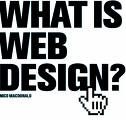
People rarely read Web pages word by word; instead, they scan the page, picking out individual words and sentences. In research on how people read websites we found that 79 percent of our test users always scanned any new page they came across; only 16 percent read word-by-word. (Update: a newer study found that users read email newsletters even more abruptly than they read websites.)
As a result, Web pages have to employ scannable text, using
We found that credibility is important for Web users, since it is unclear who is behind information on the Web and whether a page can be trusted. Credibility can be increased by high-quality graphics, good writing, and use of outbound hypertext links. Links to other sites show that the authors have done their homework and are not afraid to let readers visit other sites.
Users detested "marketese"; the promotional writing style with boastful subjective claims ("hottest ever") that currently is prevalent on the Web. Web users are busy: they want to get the straight facts. Also, credibility suffers when users clearly see that the site exaggerates.

—from Jakob Nielsen's Alertbox (http://http://www.useit.com/alertbox/9710a.html)